Let's start with the fact that a board game is a product: it's not enough for the game to be good — the product itself also needs to be well made. Djeco cards understand exactly who they're speaking to. The boxes are uniform, clearly showing that they belong to the same brand, and the line of Djeco games always looks impressive on a store shelf. The illustrations are unique and interesting; they don't always jump on the cuteness bandwagon. This makes it much easier for me, as an adult, to sit down and play with them. The cards are larger than average, making them easier for children to see when they hold them, and the cards are also thicker than usual, which obviously adds to their durability.
The game ideas are simple and genuinely playable from the age of 4–5. They're not meant to revolutionize anything — and for a children's game, that's not the point. One or two clever rules, smooth gameplay, frustration, joy, victory, loss, cooperation. The goal is to spark emotions, keep it short, and make the rules easy for parents to grasp — which can sometimes be harder for them than for the kids, since play is no longer their natural language. In fact, let's not just talk about parents: every game below has worked beautifully with grandparents too, as well as in school settings.


Familou
Gesprächiges, legendes, sammelndes Kooperationsspiel.
Tools
42 „Tierfamilien"-Karten + 6 „Wolf"-Karten.
Skills Developed
Kooperation, logisches Denken, Gedächtnis.
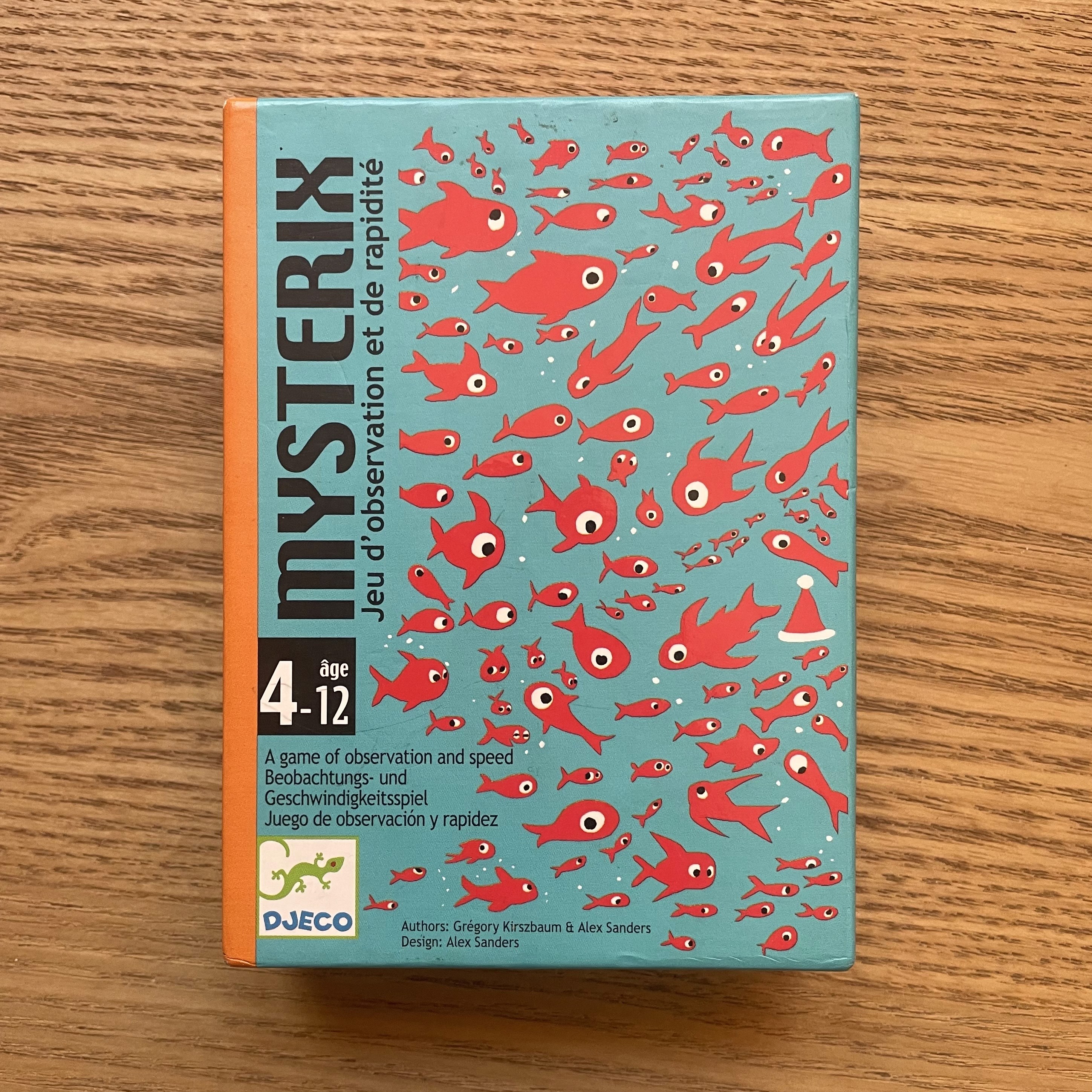

Mysterix
Du denkst, es ist einfach und leicht zu merken – aber dein Gedächtnis wird dir nur im Weg stehen!
Tools
54 Karten (9 Szenen – 6 Karten pro Szene).
Skills Developed
Visuelle Wahrnehmung, Konzentration, Schnelligkeit.

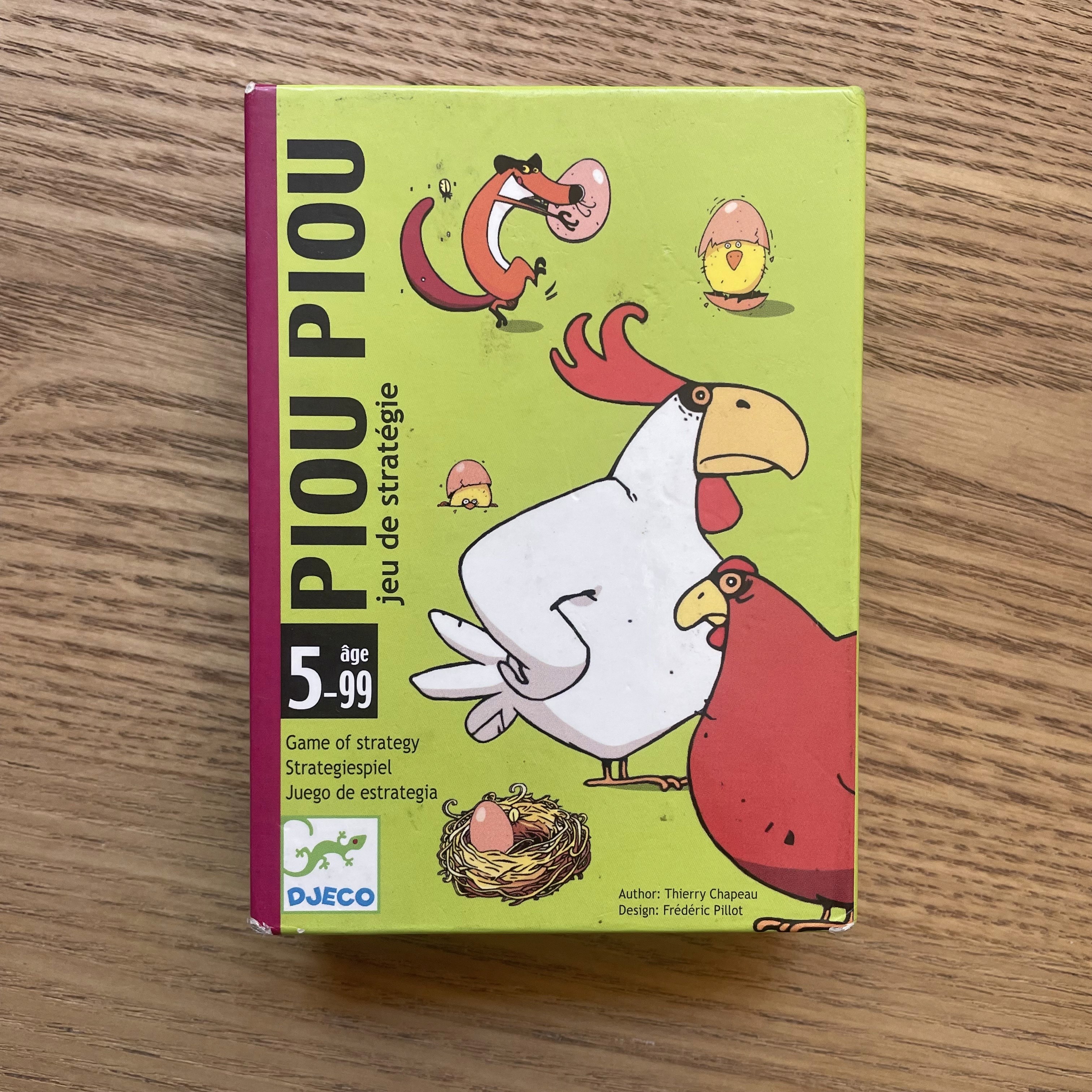
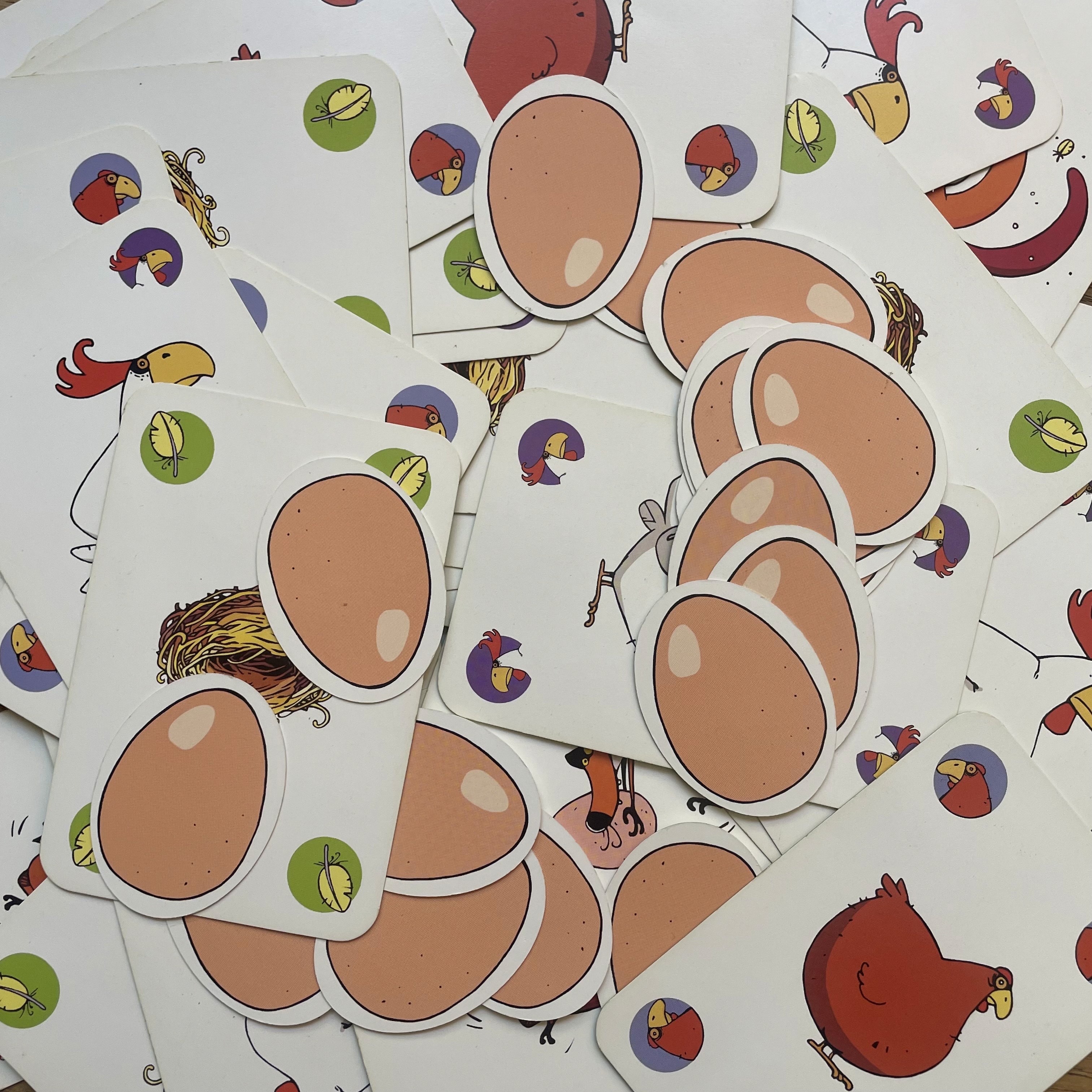
Piou Piou
Ein rasantes Sammelspiel voller spielerischer Ärgern-Momente.
Tools
47 Karten (6 Füchse, 15 Hähne, 15 Hennen, 11 Nester) und 18 Eier/Küken
Skills Developed
Strategisches Denken, Sammeln von Sets, grundlegende Logik.
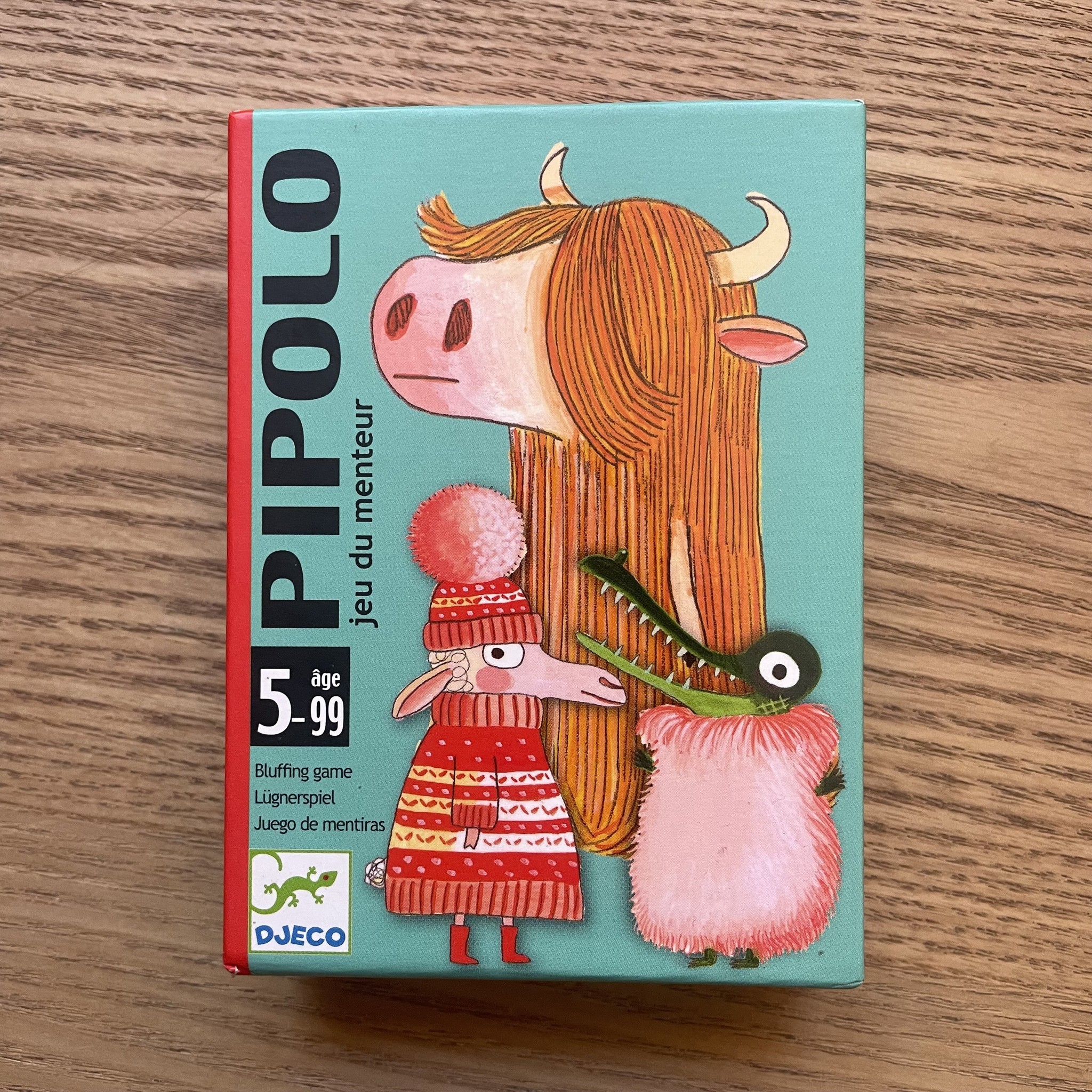
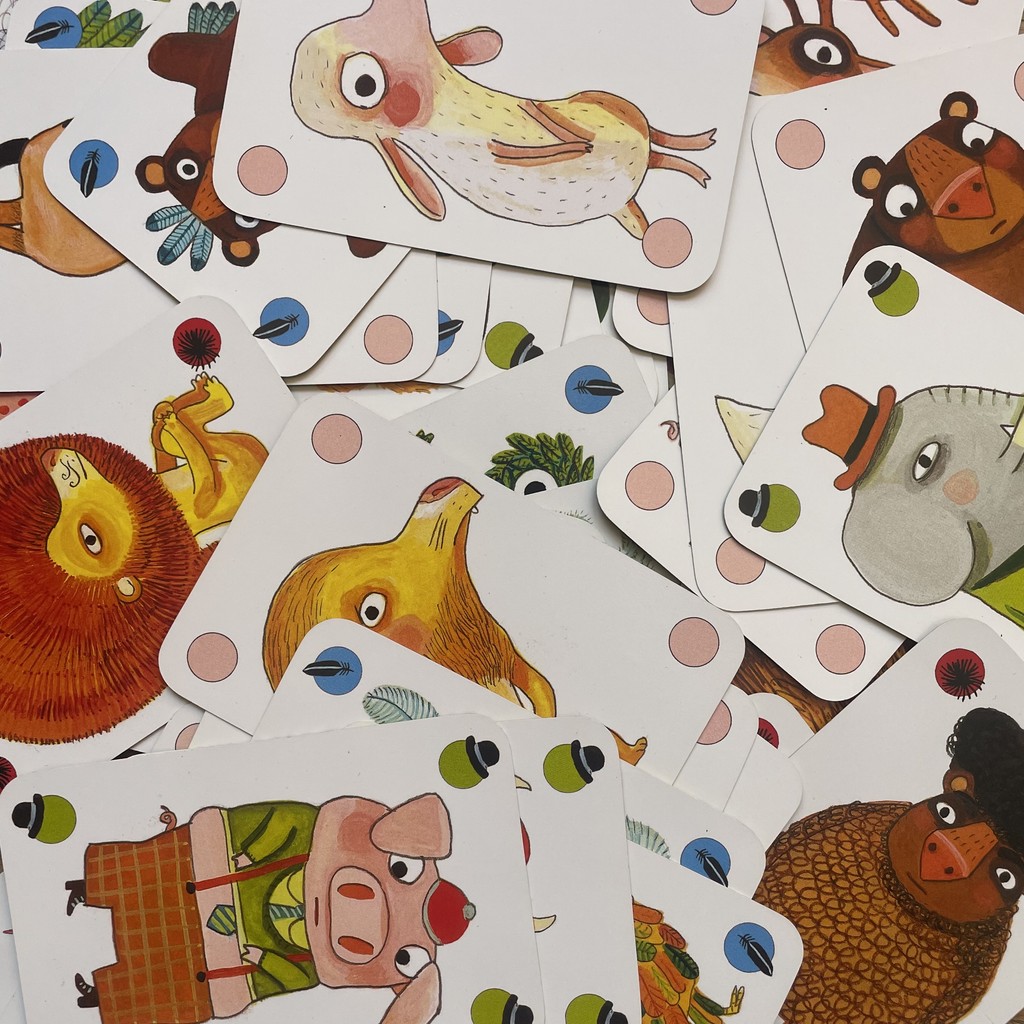
Pipolo
Ein echtes Kuriosum – dabei musst du mit Pokerface bluffen.
Tools
40 Tierkarten (10 haarige, 10 nackte, 10 gefiederte, 10 bekleidete), 4 Jokerkarten.
Skills Developed
Bluffen, Regelverständnis, visuelle Unterscheidung.
I'm generally a rule-following player. I enjoy clear, well-developed, and compact rulebooks. But I've noticed that I'm a bit more flexible when it comes to Djeco card games—and it doesn't bother me at all. It's not that their rulebooks aren't precise (they are, and compact too), but the gameplay often becomes more forgiving when led by the kids. This relaxed approach fits the overall mood of the games. Even I find myself going with the flow, sneakily collecting endless eggs. Give Djeco card games a try—they're worth it!